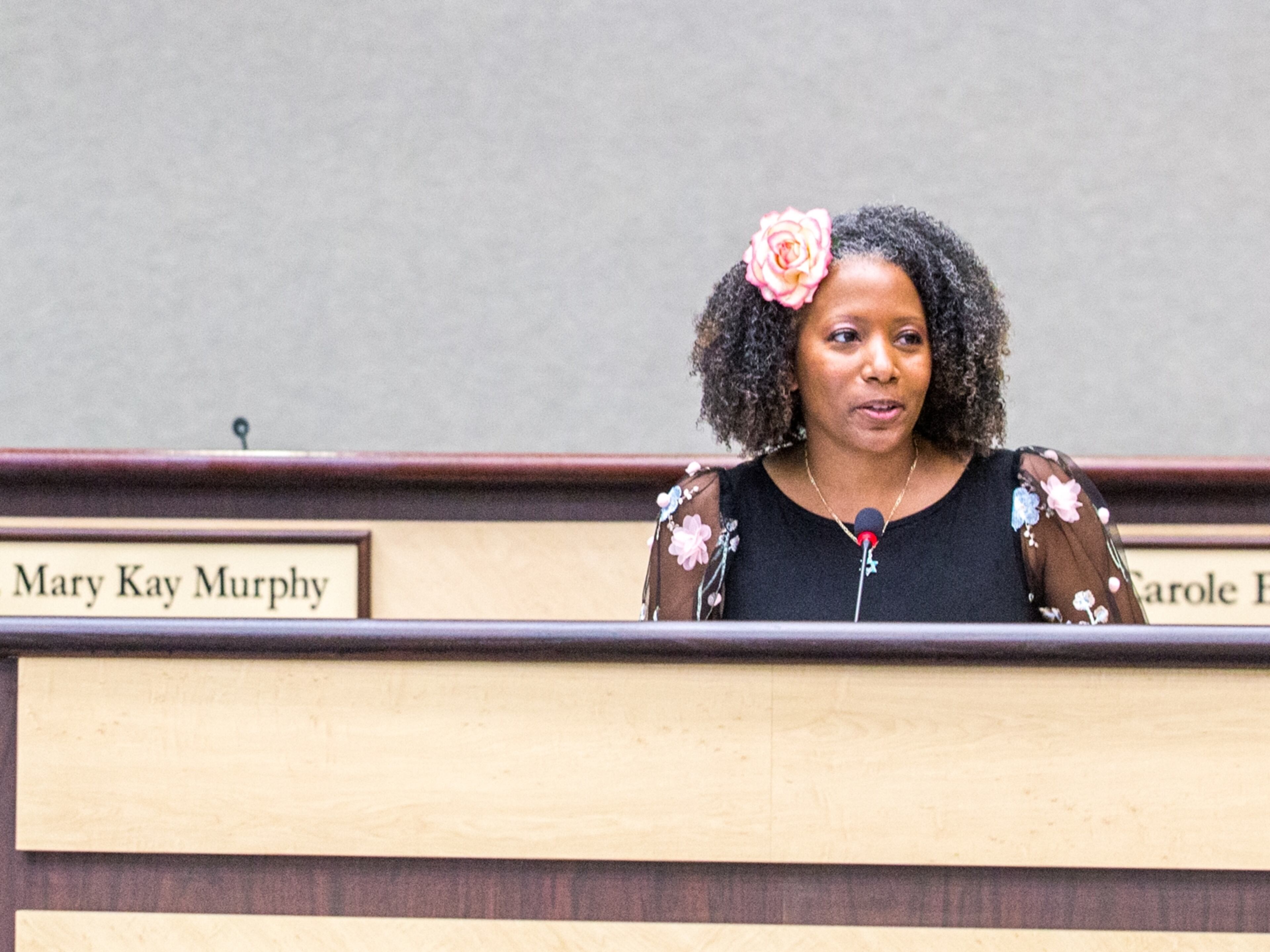Gwinnett school board implores responsiveness from staff

The Gwinnett County school board vowed accountability when it voted to renew Superintendent Calvin Watts’ contract in March, and Board Chair Tarece Johnson — the lone vote against renewal — spoke at length about persistent inequities in the district.
Such demands have increased in the months since, affecting votes and the tone of meetings.
The result, board members hope, will be more transparency to inform their decision-making as they seemingly turn up its scrutiny of the superintendent and by extension his staff.
During J. Alvin Wilbanks’ 25-year tenure as superintendent, which ended nearly two years ago, board members rarely complained in public about a lack of information from administrators. Some board members began their tenures before or shortly after Wilbanks got the job and seemed to be completely in sync with his goals.
The current transparency push reflects a desire by several newer board members to be heard and address shifting priorities, such as equity for historically marginalized students.
The May meeting seemed to mark a shift in the board’s approach. Their questions included more specific data points and time frames for responses. Johnson particularly called out a lack of proposals or data in response to her inquiries about possible budget adjustments to get more resources into needier schools.
The board is slated to have the final public hearing and vote for next year’s budget Thursday.
Johnson voted against the budget when the board preliminarily approved it last month, and she asked to see possibilities about support for English learners, incentives for their teachers, early learning investments and literacy programs.
“I keep asking for the same thing. ... I’m asking for the system to put in the work,” Johnson said. “Right now, all of our children do not have what they need to be successful and thrive.” Other members in Georgia’s largest school district also have said they want to see data on per pupil spending by school and other categories.
Board members also asked for specific numbers after a staff presentation about teacher retention efforts. Mary Kay Murphy asked for the number of teachers hired and retained — staff members said there were 1,156 new hires for the upcoming school year with more to come, but the retention figure wasn’t yet available. Adrienne Simmons asked for historical context of those numbers to better understand them.
“There’s a complete picture we’re not getting,” Vice Chair Steve Knudsen said. “For us to be able to provide some guidance, policy, procedures and approvals along those lines, we’ve got to have a clearer picture of what’s going on in the district and across the district.”
Gwinnett lags behind state and national rates of teacher retention, especially for new hires.

Johnson made a statement on social media after the meeting: “Every board member should receive clear communication related to their requests and no one should believe their advocacy or requests are not honored due to personal reasons or retaliation.”
Knudsen and board member Karen Watkins said transparent data helps inform the community.
“Right now, narratives are being built,” about Gwinnett being unable to retain teachers, Watkins said. She said presenting more information would help everyone understand if the district’s efforts are effective and perhaps help show that they are making progress.
Johnson took the unusual step of gathering the key questions from the board and asking staff to specify they would respond. They said it would be emailed to the board in its weekly update. The attrition rate for 2022-2023 — 12.5% — was the lowest of any year included in the update.
Johnson concluded her social media post expressing her desire for each board member to be “respected.”
“I am hopeful that moving forward, each and every board member will have what they need to make responsible decisions and know their voices matter too,” she wrote.



